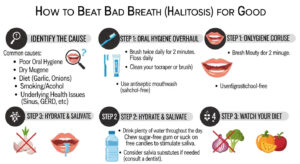Author: nearmedental
A healthy body is a cornerstone of living a good life. In this regard, one essential but generally overlooked aspect is dental care. Even though dental health is crucial still millions of people do not receive the proper dental care due to unavailability and unaffordability.
Medicare is a social insurance program in the United States that provides health insurance coverage to people aged 65 and older. The federal government is responsible for administering the program but the handling and funding are under the purview of the state governments. Therefore each state sets up its own guidelines for Medicare eligibility.
What is Medicare?
Medicare is not a health insurance program. It is a federally-funded health care program in which seniors can choose to enroll. The program gives 60 million people access to low-cost and high-quality health insurance. Medicare also offers people the option of hospitalization expenses which is in Part A and in Part B, it pays for doctor’s services.
The Medicare program is incredibly complex and for that reason, the government has streamlined its processes to make it easier for Americans to understand. They’ve simplified Medicare into different plans. Every component complements the others to allow seniors to enjoy the highest-quality healthcare possible. If you’re new to Medicare or even considering it, here are some facts that you should know about its benefits.
1. Eligibility for Medicare
You may be eligible for Medicare if you’re:
- A citizen or permanent resident of the US,
- At least 65 years old,
- Eligible for Social Security benefits.
To get the most out of your Medicare plan, it is important to know how you can avoid paying out-of-pocket. If you also need coverage for supplemental medical and dental services, then consider a Part B Medicare plan. With most Part B plans, there is no monthly premium if your original Medicare plan is through Social Security.
2. How is Medicare funded?
Medicare is funded differently –
- Medicare is partially funded by payroll taxes in Part A. It means that USA companies make contributions based on the number of employees.
- Revenue primarily comes from payroll taxes that all Americans pay in Part B, including those who are not on Medicare.
- Part C (Medicare Advantage) also relies on quality and efficiency measurements.
- General revenue and premium fund the medicare part D. Moreover, state contributions from select areas supplement the program, as and when necessary.
3. Dental Coverage of Medicare Dentist Near Me
i. Original Medicare Dental Coverage (Part A)
- Medicare, the federal health insurance system for senior citizens, does not cover dental care. This includes cleanings, oral exams, fillings, crowns, bridges, appliances, and dentures. That means seniors who are on Medicare will have to pay out of pocket for these dental services.
- Medicare Part A does not cover dental services, but you can get dental coverage from Original Medicare if you buy a policy from a private company.
ii. Original Medicare Dental Coverage (Part B)
- If you need to have your wisdom teeth removed before further oral surgery or a reconstructive jaw surgery after an accident or need extractions for a dental implant. These issues may be covered as long as the service is related to a covered Medicare benefit.
- Additionally, Plan B covers some of the procedures after a cancer diagnosis or radiation therapy.
iii. Medicare dental coverage (Part C)
Part C plans give you a chance to make use of comprehensive dental coverage under Medicare. However, this doesn’t mean that other dental benefits, such as those offered to senior citizens or other members of your family under traditional Medicare, won’t be available to you.
- Coverage under Medicare is also under the coverage of Medicare plus. In addition, many of these plans offer additional benefits such as dental or vision insurance, wellness programs, and/or prescription drug coverage.
- Medicare can cover a range of dental services. Patients with Medicare Advantage plans, supplemental insurance, or limited or no dental coverage can choose dental care that suits their pocketbooks and needs.
If you’re in one of these groups, Medicare Advantage plans, supplemental insurance, or limited or no dental coverage can help you find all your braces costs. Starting with pre-treatment examinations and cleanings to ensure your mouth remains in the best possible shape throughout treatment.
Wrapping Up
Many seniors are unaware of their options when it comes to dental coverage. Medicare, for instance, does not cover basic dental care. Medicare only pays for specialized procedures like dentures and dental implants if you meet the program’s eligibility requirements. Look out for the best medicare dentist near me and find affordable dental insurance plans that provide coverage for all kinds of dental treatments.












